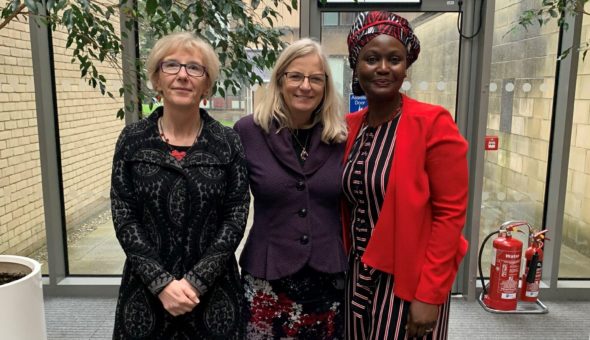By Janet Goodall, Sue Johnston-Wilder and Rosemary Russel
Editors: Ulises Xolocotzin
eBook ISBN: 9780128024898
Hardcover ISBN: 9780128022184
Published Date: 26th May 2017
Available online at - http://www.sciencedirect.com/science/article/pii/B978012802218400011X
In our chapter (Chapter 11) in this edited work, we build on ideas of mathematical resilience, that is, becoming resilient, unafraid in the face of mathematics, and illustrate how the notion of mathematical resilience and the growth zone can be used to improve the emotional experience of learning mathematics at home.
We introduce the notion of mathematical safe-guarding as an intrinsic part of the parent's role. We also introduce maths, as experienced typically in the home, as Accessible, Linked, Inclusive, Valued, Engaging (ALIVE) and contrast this with maths as experienced typically in school, as TIRED (tedious, isolated, rote, elitist, de-personalised). On the basis of previous work in the field, we consider that the teaching of maths in many situations may in fact constitute an issue which should be covered by those with a remit for safeguarding.
We demonstrate the power of the 'growth zone model' in bringing parents from mathematical exclusion to inclusion and curiosity, and learning how to apply safeguarding to the practice of learning mathematics.
Based on the literature in the field and an interview process with a mother/child dyad, we suggest that many people have learned to be helpless in the face of maths; it is common to hear people not only proclaim, “Oh, I’m no good at maths” but also to tell their children the same thing, setting maths up as an area of struggle and anxiety, rather than experiential learning. People who experience learned helplessness in relation to maths feel that they have no control over their own learning or work in this area. This aptly describes the experience of many parents, and was the case for the mother and child whose learning process is described in this chapter.
Through work with “Brenda”, the mother and child both began to overcome their helplessness in relation to maths, and took back control of their own learning. We offer concrete suggestions for supporting both students and parents to overcome maths anxiety and to become maths resilient.
Respond

